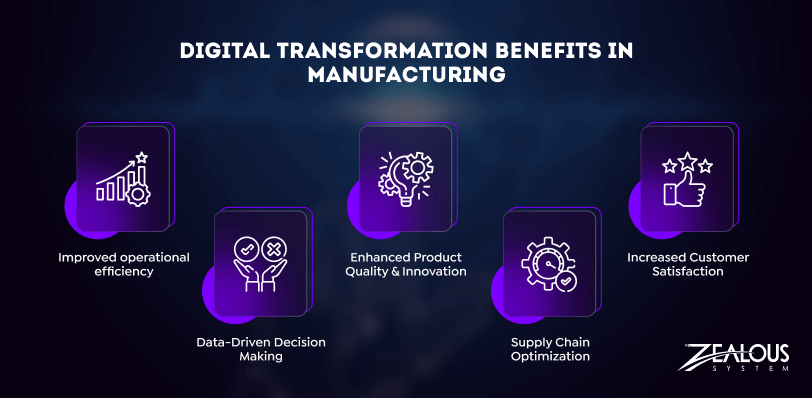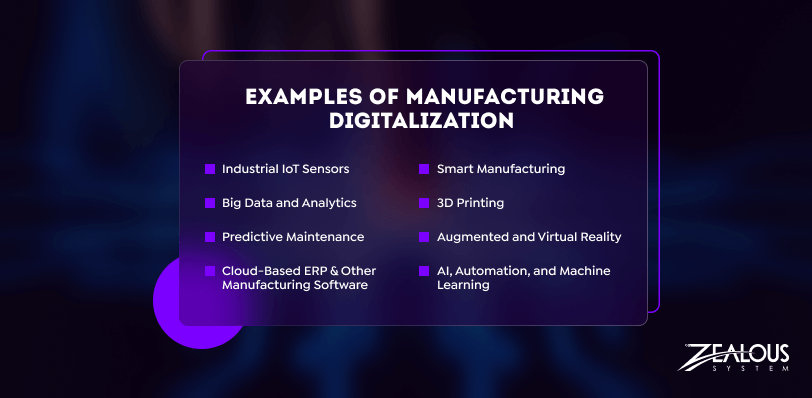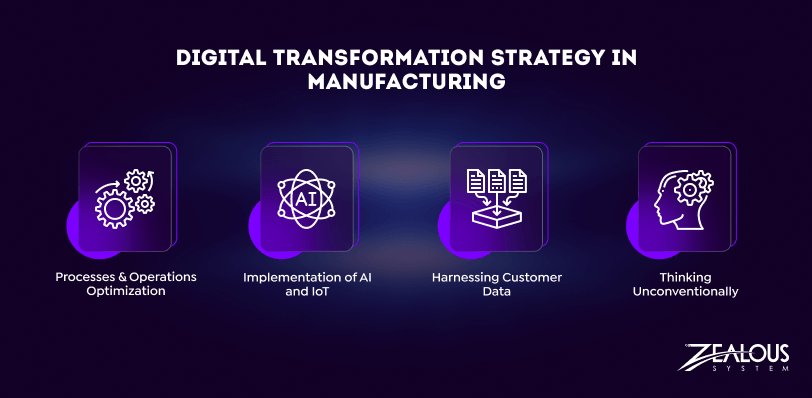
- Company
- Services
- UI/UX Design Services
- Microsoft Dynamics 365
- Mobile App Development
- AI Software Development
- Web App Development
- Generative AI Development
- Digital Product Development
- Enterprise Mobility
- SaaS Application Development
- Application Integration
- White-label WP Maintenance
- ERP Software Solutions
- Software Testing
- Offshore Development Center
- Let’s Connect
- Trending
- Technology
- Industry
- Build Your Team
- Our Work
- Company
- Services
- UI/UX Design Services
- Microsoft Dynamics 365
- Mobile App Development
- AI Software Development
- Web App Development
- Generative AI Development
- Digital Product Development
- Enterprise Mobility
- SaaS Application Development
- Application Integration
- White-label WP Maintenance
- ERP Software Solutions
- Software Testing
- Offshore Development Center
- Let’s Connect
- Trending
- Technology
- Industry
- Build Your Team
- Our Work
We use cookies and similar technologies that are necessary to operate the website. Additional cookies are used to perform analysis of website usage. please read our Privacy Policy
Digital Transformation in Manufacturing: Benefits, Challenges, Examples, Trends, Strategy

In today’s rapidly evolving tech world, digital transformation in manufacturing has become a key focus for manufacturing industries across the globe. The manufacturing sector is no exception, as it seeks for a greater usage of digital technologies to smoothly run operations, improve efficiency, and remain competitive.
As per the report from Future market insights, The global digital transformation in the manufacturing market was estimated to reach a valuation of US$ 491.09 billion in the year 2022. With a robust CAGR of 21.2% from 2023 to 2033, this market is anticipated to reach US$ 595.2 billion by 2023 and US$ 4.07 trillion by 2033.
In this read, we will explore the concept of digital transformation in manufacturing, impact of digital transformation in manufacturing, digital transformation challenges in manufacturing, digital transformation benefits in manufacturing, some examples of digitalization in manufacturing, key digital transformation technologies in the manufacturing and digital transformation strategy in manufacturing industry as well.
What is Digital Transformation in Manufacturing?
Digital transformation in manufacturing is process of implementing digital technologies throughout the manufacturing value chain, from design and production to supply chain management and customer engagement. Digital transformation involves adjusting with the latest technologies such as Internet of Things (IoT), artificial intelligence (AI), big data analytics, cloud computing, and robotics to enhance operational efficiency, enable data-driven decision-making, and boost innovation.
Impact Of Digital Transformation In Manufacturing Industry
Now, we have quite understood the concept of digital transformation, we’ll see the impact it has on the industry and how vastly it affects! The advent of digital transformation has revolutionized the manufacturing industry, ushering in an era of revolutionary innovation and efficiency.
By integrating the latest technologies: Internet of Things (IoT), artificial intelligence (AI), big data analytics, and automation, manufacturers have witnessed a powerful impact on their operations, supply chains, and overall competitiveness.
One of the key benefits of digital transformation in manufacturing is the optimization of production processes via real-time data collection and analysis. This enables manufacturers to make data-driven decisions, optimize resource allocation, reduce waste, and improve product quality.
The implementation of smart manufacturing systems and robotics has led to increased productivity, increased worker safety, and reduced labor costs. The use of AI and machine learning algorithms in predictive maintenance has revolutionized equipment management by allowing proactive maintenance, minimizing downtime, and maximizing operational efficiency.
Digital transformation in manufacturing industry has facilitated the integration of supply chains through smooth communication and collaboration among suppliers, manufacturers, and customers, to ease out operations and improve customer satisfaction.
Key Trends in Digital Transformation in Manufacturing Industry
- With the industry 4.0, the industrial sector is embracing digital technologies to modernize their operations. In particular, technologies such as robotics and the Internet of Things (IoT) play a major role in digital transformation.
- Robots equipped with these technologies can operate non-stop, without encountering any issues or mistakes which greatly contributes to the growth of digital transformation in the manufacturing industry, and this positive trend is expected to continue in the foreseeable future.
- Businesses are increasingly adopting Industry 4.0 technologies, including the use of robotization. Take Vepa for example, a company that specializes in project and workplace furnishings. They have adopted robotization in their warehouse, which has helped them boost their productivity and efficiency.
- Moreover, we can expect to see a rise in the use of collaborative machines in production processes, as they offer promising potential for improved collaboration between humans and machines.
Digital Transformation Challenges in Manufacturing
As manufacturers strive to stay competitive in a rapidly evolving landscape, they are increasingly adopting digital transformation initiatives. However, this journey is not without digital transformation challenges in the manufacturing industry.
1. Legacy Systems and Infrastructure
One of the primary challenges in digital transformation for manufacturing industry is dealing with legacy systems and outdated infrastructure. Many manufacturers have relied on traditional processes and technologies for years, leading to a complex web of diversified systems that are not designed to work together smoothly. Integrating these legacy systems with modern digital technology solutions reduce a significant hurdle.
To address the challenges, manufacturers must invest in system modernization efforts. This may involve replacing outdated hardware and software, implementing standardized data formats, and developing strong APIs for interoperability. By gradually phasing out legacy systems and embracing modern technology infrastructure, manufacturers can lay the foundation for successful digital transformation.
2. Data Management and Integration:
Manufacturing processes generate vast amounts of data from various sources such as machines, sensors, and supply chain systems. Efficiently managing and integrating this data is a crucial aspect of digital transformation in manufacturing, as it is critical for controlling its full potential in driving operational improvements.
To overcome those challenges, manufacturers need to establish a tough data management strategy. This strategy should include implementing data governance practices, investing in data integration platforms, and utilizing advanced analytics tools. By centralizing data storage, standardizing data formats, and ensuring data accuracy, manufacturers can have valuable insights and make well-informed decisions in the era of digital transformation in manufacturing.
3. Cybersecurity and Data Privacy
With increased connectivity and digitalization comes a great risk of cyber threats. The manufacturing industry, which relies heavily on intellectual property and sensitive data, is an attractive target for cybercriminals. Protecting valuable assets and maintaining data privacy throughout the digital transformation in manufacturing journey is of utmost importance.
Manufacturers should prioritize cybersecurity by implementing multi-layered defense mechanisms, conducting regular vulnerability assessments, and educating employees about security best practices. Robust encryption, access controls, and intrusion detection systems should be put in place to safeguard critical systems and data. Additionally, compliance with data privacy regulations, such as the General Data Protection Regulation (GDPR), is essential for maintaining customer trust.
4. Workforce Skills and Change Management:
Digital transformation in manufacturing requires a workforce equipped with the necessary skills to effectively use new technologies. However, upskilling existing employees and attracting talent with digital expertise can be of a challenge. Moreover, resistance to change from the workforce can hinder the adoption of new digital processes and technologies.
Manufacturers need to invest in informative training programs to bridge the skills gap and empower employees to embrace digital tools. Changes in management initiatives, such as clear communication, stakeholder engagement, and user-centric design, can help alleviate resistance and create a culture of innovation. Involving employees in the transformation process and highlighting the benefits of digitalization can drive acceptance and enthusiasm for change.
5 Key Benefits of Digital Transformation in Manufacturing
In recent years, the manufacturing industry has witnessed a significant shift towards digital transformation. Let’s explore the various benefits of digital transformation in manufacturing, focusing on how it revolutionizes processes, enhances efficiency, and paves the way for future growth.
Improved Operational Efficiency
Digital transformation in manufacturing offers manufacturers the opportunity to optimize their operations, resulting in improved efficiency and reduced costs. Through the integration of smart sensors, Internet of Things (IoT) devices, and real-time data analytics, manufacturers can monitor equipment performance, track inventory, and automate routine tasks.
Such level of automation minimizes human error, increases productivity, and enables better resource allocation, leading to trim production processes and lift up operational efficiency.
Data-Driven Decision Making:
Digital transformation in manufacturing equips manufacturers with powerful tools to collect, analyze, and utilize data very efficiently. With the help of technologies such as big data analytics and artificial intelligence (AI), manufacturers can gain valuable insights into their operations, supply chains, and customer behavior.
These insights enable data-driven decision making, allowing manufacturers to identify trends, anticipate demand, and optimize production schedules. With accurate and timely information, manufacturers can make informed decisions that positively impact their bottom line.
Enhanced Product Quality and Innovation
Through the implementation of smart manufacturing technologies and real-time monitoring, manufacturers can detect and address issues early in the production process, ensuring consistent product quality.
Additionally, digital transformation enables manufacturers to collect feedback from customers and incorporate it into the digital product development cycle, fostering innovation and driving the creation of new, customer-centric products and services.
Supply Chain Optimization
One of the significant benefits of digital transformation in manufacturing lies in optimizing the supply chain. By embracing digital technologies such as cloud-based systems, blockchain, and automation, manufacturers can increase supply chain visibility, traceability, and collaboration.
Real-time data sharing lets manufacturers track inventory levels, monitor shipments, and identify potential bottlenecks or disruptions. This visibility allows for proactive decision making, reducing lead times, minimizing stockouts, and improving overall supply chain efficiency.
Increased Customer Satisfaction
Digital transformation in manufacturing empowers manufacturers to better meet customer expectations and enhance overall customer satisfaction. By adopting technologies such as customer relationship management (CRM) systems and data analytics, manufacturers can gain a greater understanding of customer preferences, behavior, and feedback.
With the help of this knowledge, manufacturers can personalize their offerings, improve customer service, and create custom experiences that resonate with their target audience. Ultimately, this leads to increased customer loyalty and a competitive advantage in the market.
8 Examples of Manufacturing Digitalization
In the rapidly evolving landscape of manufacturing, digitalization has become a key driving force behind efficiency, productivity, and innovation. In 2024, various technology trends have reshaped the manufacturing sector. Here’s a brief on some prominent examples of digital transformation in manufacturing, including industrial IoT sensors, big data and analytics, AI, automation, and machine learning, cloud-based ERP and other manufacturing software, smart manufacturing, 3D printing, predictive maintenance, and augmented and virtual reality.
Industrial IoT Sensors
Industrial Internet of Things (IoT) sensors are revolutionizing the digital transformation in manufacturing by enabling real-time data collection and analysis. These sensors monitor various aspects of the manufacturing process, such as temperature, pressure, humidity, and machine performance.
By gathering and analyzing this data, manufacturers can optimize operations, reduce downtime, enhance quality control as well.
Big Data and Analytics
The proliferation of data in manufacturing, catalyzed by digital transformation in manufacturing, highlights the increasing importance of accessible big data analytics. Manufacturers can now freely collect and analyze vast amounts of data from various sources, including sensors, production systems, and supply chains.
Big data analytics helps manufacturers in optimizing production, identify bottlenecks, predict maintenance needs, and optimize supply chain management.
AI, Automation, and Machine Learning
Artificial Intelligence (AI), automation, and machine learning are playing pivotal roles in digital transformation in the manufacturing industry. AI-powered mobile apps can automate repetitive tasks, optimize production schedules, and improve quality control.
In the era of digital transformation in manufacturing, machine learning algorithms can learn from historical data to predict maintenance needs, optimize inventory management, and streamline the production process. AI and automation not only enhance efficiency but also enable manufacturers to adapt quickly to changing market demands.
Cloud-Based ERP and Other Manufacturing Software
Cloud-based Enterprise Resource Planning (ERP) systems have transformed manufacturing by providing centralized and real-time access to data across the organization. Cloud-based ERP software enables manufacturers to modernize operations, improve collaboration, manage inventory effectively, and enhance customer service.
The other manufacturing mobile and web applications, such as Product Lifecycle Management (PLM) and Manufacturing Execution Systems (MES), integrate with ERP systems which creates a digital ecosystem that drives efficiency and agility.
Smart Manufacturing
Smart manufacturing combines various digital technologies to create interconnected and intelligent manufacturing ecosystems. This approach to digital transformation in manufacturing encompasses the integration of IoT devices, AI, robotics, and data analytics to optimize the entire production process.
Smart manufacturing allows real-time monitoring, predictive maintenance, quality control, and demand-driven production. By embracing smart manufacturing, manufacturers can achieve higher productivity, reduced costs, and increased agility to meet customer demands.
3D Printing
3D printing has gained significant traction in recent years in the context of digital transformation in manufacturing. This digitalization technology allows manufacturers to create complex and customized components and products layer by layer. 3D printing reduces material waste, shortens production cycles, and enables rapid prototyping.
3D printing offers the potential to revolutionize supply chains by enabling on-demand manufacturing and localized production, leading to reduced logistics costs and increased flexibility.
Predictive Maintenance
Predictive maintenance, a vital component of digital transformation in manufacturing, leverages data analytics, machine learning, and IoT sensors to anticipate equipment failures before they occur. By continuously monitoring equipment performance, manufacturers can detect patterns and anomalies that indicate potential breakdowns.
Predictive maintenance minimizes downtime, improves asset utilization, and reduces maintenance costs. 3D printing allows manufacturers to shift from reactive and scheduled maintenance to a proactive and data-driven approach.
Augmented and Virtual Reality
Augmented Reality (AR) and Virtual Reality (VR) technologies are transforming manufacturing processes, training, and maintenance activities. AR app development services overlays digital information onto the real-world environment, providing workers with real-time guidance, remote assistance, and access to contextual data.
VR immerses users in a simulated environment, enabling virtual training, design visualization, and remote collaboration. These technologies enhance worker productivity, reduce errors, and improve safety.
7 Key Digital Transformation Technologies in the Manufacturing
Several key technologies are driving digital transformation in manufacturing, reshaping the way manufacturing operations are conducted. Here are some important technologies that are at the forefront of digital transformation in manufacturing industry:
1. Internet of Things (IoT):
- Connected devices and sensors gather real-time data, allowing manufacturers to monitor and optimize operations.
- IoT facilitates predictive maintenance, reducing downtime and improving overall equipment effectiveness.
- Lifting up supply chain visibility through IoT enabling proactive inventory management and demand forecasting.
2. Artificial Intelligence (AI) and Machine Learning (ML):
- AI-powered algorithms analyze large datasets to identify patterns and make intelligent decisions.
- Machine learning algorithms enable predictive analytics for quality control, and optimization of manufacturing processes.
- AI-driven robotics and automation pave the way through production lines, improving accuracy, speed, and flexibility.
3. Big Data and Analytics:
- The vast amount of data generated by manufacturing operations can be harnessed for valuable insights.
- Advanced analytics tools help identify inefficiencies, optimize workflows, and improve product quality.
- Real-time data analytics lets manufacturers take improved decisions and respond swiftly to changing market demands.
4. Cloud Computing:
- Cloud platforms provide vast and secure storage for manufacturing data, reducing the need for on-premises infrastructure.
- Collaboration and communication between teams are improved, allowing real-time sharing of information and crafting agility.
- Cloud-based web applications can do remote monitoring and control of production processes, increasing operational efficiency.
5. Additive Manufacturing (3D Printing)
- 3D printing allows for rapid prototyping, customization, and production of complex parts on-demand.
- 3D printing reduces material waste, lowers costs, and enables decentralized manufacturing.
- Additive manufacturing enables the creation of lightweight and optimized designs, enhancing product performance.
6. Cybersecurity:
- With increased connectivity, manufacturing systems become vulnerable to cyber threats.
- Strong cybersecurity measures protect intellectual property, sensitive data, and critical infrastructure from unauthorized access or attacks.
- Implementing secure architectures and conducting regular audits ensure the integrity and resilience of digital manufacturing systems.
7. Augmented Reality (AR) and Virtual Reality (VR):
- AR and VR technologies enhance training, maintenance, and troubleshooting processes.
- Virtual simulations and immersive experiences facilitate design reviews, reducing time and costs.
- AR-enabled smart glasses provide real-time instructions and guidance, improving worker productivity and reducing errors.
Digital Transformation Strategy in Manufacturing Industry
Here are key pointers to consider when formulating a digital transformation strategy in the manufacturing industry:
Processes and Operations Optimization
Taking advanced analytics and automation tools into consideration, organizations can identify bottlenecks, eliminate inefficiencies, and enhance productivity. This can lead to cost savings, improved quality control, and faster time-to-market.
Implementation of AI and IoT
Artificial Intelligence (AI) and the Internet of Things (IoT) play a major role in manufacturing’s digital transformation. AI-powered technologies, such as machine learning and predictive analytics, can help manufacturers optimize maintenance schedules, and improve overall equipment effectiveness. IoT devices facilitate real-time monitoring, gather valuable data, enhance supply chain visibility, and predictive maintenance.
Harnessing Customer Data
In the digital age, digital transformation in manufacturing has elevated the significance of customer data. By analyzing customer behavior, preferences, and feedback, manufacturers can drive product innovation and personalize customer experiences. Utilizing data analytics tools, manufacturers can identify market trends, anticipate customer demands, and tailor their offerings accordingly.
Thinking Unconventionally
Manufacturers have to think beyond traditional boundaries. In the era of digital transformation in manufacturing, technologies like 3D printing, robotics, and virtual reality can open up new possibilities for product design, customization, and production. Exploring partnerships and collaborations with tech startups and research institutions can also bring fresh perspectives and accelerate innovation.
Concluding Lines
In conclusion, digital transformation in the manufacturing industry brings a multitude of benefits, along with its fair share of challenges. Nonetheless, numerous examples showcase the transformative power of digital technologies in manufacturing.
Companies like GE, Siemens, and Bosch have successfully implemented digital strategies to optimize production, reduce downtime, and drive product innovation. Others, such as BMW and Airbus, have embraced automation and robotics, resulting in improved efficiency and product quality. These examples demonstrate that a well-executed digital transformation strategy can be a game-changer for manufacturers, enabling them to thrive in the digital era and stay ahead of the competition.
We are here
Our team is always eager to know what you are looking for. Drop them a Hi!
Pranjal Mehta
Pranjal Mehta is the Managing Director of Zealous System, a leading software solutions provider. Having 10+ years of experience and clientele across the globe, he is always curious to stay ahead in the market by inculcating latest technologies and trends in Zealous.
Table of Contents
×




Comments